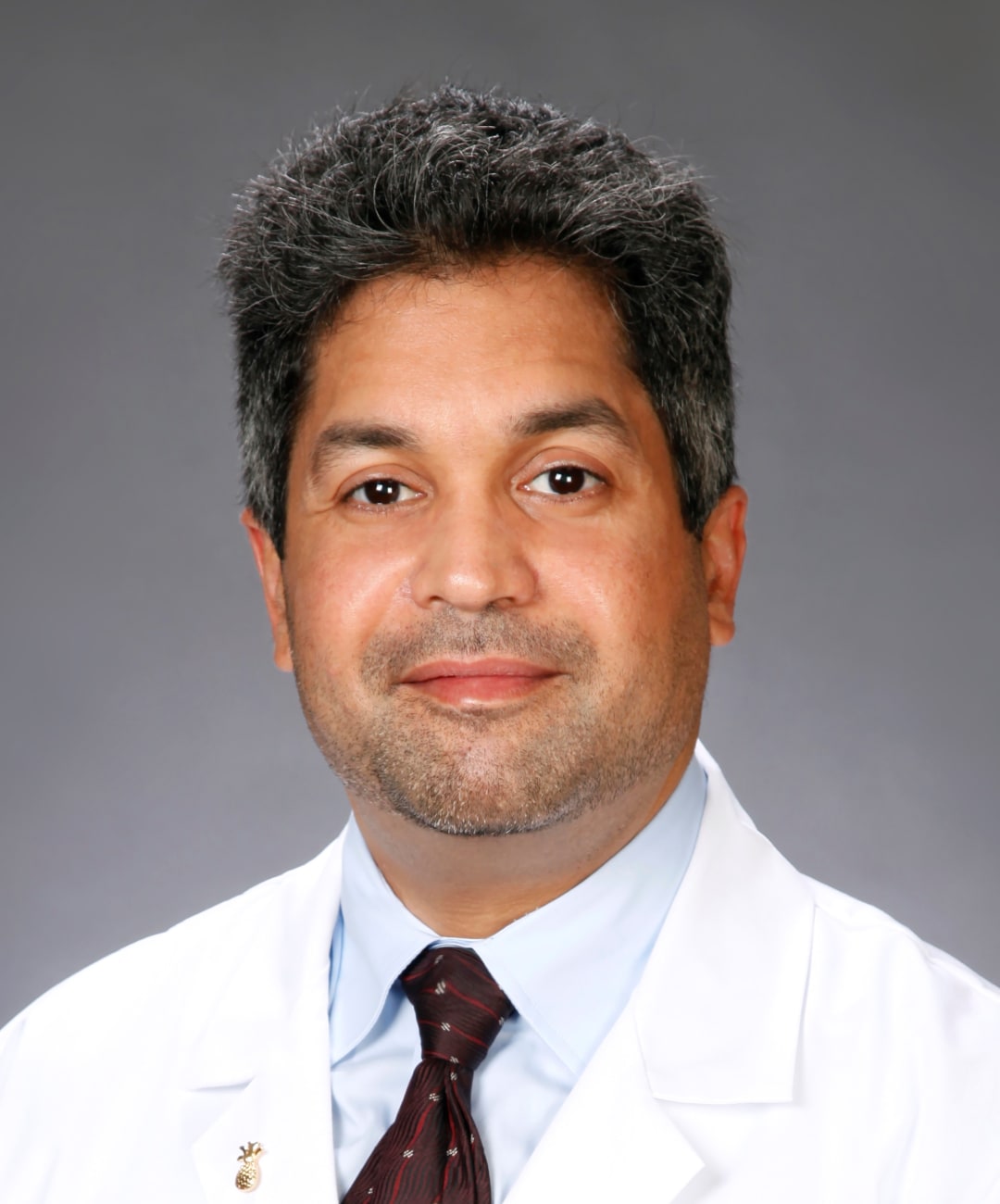

Baptist Health’s Miami Neuroscience Institute and Marcus Neuroscience Institute, a part of Baptist Health South Florida, have switched from using alteplase to tenecteplase as their first-line clot-busting treatment for patients with acute ischemic stroke.
Alteplase and tenecteplase are recombinant tissue plasminogen activator (rtPA) thrombolytic medications. They work by enhancing the body’s ability to destroy blood clots.
Alteplase has been the gold standard in stroke treatment since its approval in the mid-1990s and is still considered an effective treatment for acute ischemic stroke. Nevertheless, says Felipe De Los Rios, M.D., F.A.H.A., director of the stroke program at Miami Neuroscience Institute, alteplase has its shortcomings.

Felipe De Los Rios, M.D., F.A.H.A., Director of the stroke program at Miami Neuroscience Institute
These include a short half-life and less specificity in targeting the clot location, potentially leading to an increased risk of hemorrhage in other parts of the body.
Dr. De Los Rios says alteplase use also poses challenges to health systems. For example, alteplase administration requires an hour-long infusion. Infusions are problematic for patients who need to emergently transfer to another hospital for rapid endovascular surgical intervention.
“Few hospitals have a 24-7 endovascular surgeon, so patients often need to be transferred for this care,” says Dr. De Los Rios. “But patient transfer can be delayed if a critical care ambulance is not available to facilitate the transfer and simultaneously provide an alteplase infusion.”
Dr. De Los Rios says there are also logistical challenges with transferring pumps to ambulances and returning them to their originating hospitals.
“We have made the switch from alteplase to tenecteplase because studies have shown that this medication has substantial benefits compared to alteplase,” says Dr. De Los Rios. “And not just for a Comprehensive Stroke Center like ours, but also for other sites where endovascular surgery is not immediately available.”
Khalid A. Hanafy, M.D., medical director of neurocritical care and research at Marcus Neuroscience Institute, says another major advantage of tenecteplase is that it may prevent hemorrhagic transformation — a common complication of acute ischemic stroke that can cause neurological deterioration in patients.

Khalid A. Hanafy, M.D., Medical director of neurocritical care and research at Marcus Neuroscience Institute
“Tenecteplase is supposed to be more specific for thrombus (a blood clot that forms on the wall of a blood vessel) and less likely to result in hemorrhagic transformation. This makes it safer for patients,” Dr. Hanafy says.
Other benefits of tenecteplase include:
- Longer half-life and simpler, shorter delivery. While alteplase requires prep time and is given as an infusion, tenecteplase is administered as a bolus in a fraction of the time. No pumps and quick preparation make tenecteplase advantageous for patient transfers.
- Greater specificity. Research shows that tenecteplase works more directly on the fibrin associated with clots, having less impact on other parts of the body.
- Better clot-busting capabilities. Tenecteplase has proven to be superior to alteplase at breaking up clots. This includes larger clots affecting bigger arteries. In some studies, tenecteplase achieved double the rate of recanalization of these arteries when compared to alteplase. Its effectiveness at removing larger clots could ultimately reduce the need for endovascular surgery in subsets of patients.
“When it comes to stroke care, every minute counts. Any delay in care can affect recovery outcomes,” says Dr. De Los Rios. “With this medication [tenecteplase], we believe we can deliver treatment faster, and that has been true since we began using it. We have reduced our door-to-need times and improved the speed of transfers.
“Based on the studies of tenecteplase, we believe this medication offers substantial benefits to patients. As an institute and hospital system, we felt it important to make this medication available to the stroke community.”
Baptist Health Miami Neuroscience Institute offers comprehensive and compassionate treatment for neurological conditions affecting the brain, spinal cord and peripheral nervous system. Marcus Neuroscience Institute, part of Baptist Health South Florida, serves patients across Palm Beach County and is an innovative nexus for neurologic and neurosurgical care. From non-surgical treatments and minimally invasive procedures to complex brain and spine surgery, both institutes embrace a multidisciplinary approach to patient care.
To refer a patient to Baptist Health’s Miami Neuroscience Institute or Marcus Neuroscience Institute, call 833-596-3876.

